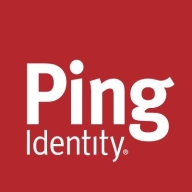

OpenText Identity Manager and ForgeRock compete in the identity management category. ForgeRock seems to have the upper hand due to its extensive features and scalability, although it comes at a higher cost.
Features: OpenText Identity Manager includes robust access control, compliance management, and solid security measures. ForgeRock offers advanced identity governance, single sign-on capabilities, and flexible integration, which makes it highly scalable for comprehensive identity solutions.
Room for Improvement: OpenText could enhance its user interface, integrate more third-party applications, and improve its scalability. ForgeRock may improve its deployment simplicity, reduce complexity in customization, and offer more competitive pricing to balance its extensive feature set.
Ease of Deployment and Customer Service: OpenText provides straightforward deployment and effective support, facilitating an easier onboarding process. ForgeRock's deployment is more complex due to its broad feature suite but is supported by an efficient customer service team, which ensures ongoing customer engagement.
Pricing and ROI: OpenText is known for its cost-effective setup, appealing to businesses with budget considerations by offering satisfactory ROI. ForgeRock, although higher in price, promises significant ROI through its advanced features and scalability, appealing to organizations focused on long-term strategic growth.
| Product | Market Share (%) |
|---|---|
| ForgeRock | 3.7% |
| OpenText Identity Manager | 2.0% |
| Other | 94.3% |
| Company Size | Count |
|---|---|
| Small Business | 16 |
| Midsize Enterprise | 5 |
| Large Enterprise | 17 |
| Company Size | Count |
|---|---|
| Small Business | 9 |
| Midsize Enterprise | 4 |
| Large Enterprise | 6 |
ForgeRock is a comprehensive open-source identity and access management solution designed to meet the unique needs of your users and workforce. With ForgeRock you can orchestrate, manage, and secure the complete lifecycle of identities in any cloud or hybrid environment. ForgeRock allows you to set up bot detection, identity proofing, and risk-based authentication.
With ForgeRock, you can define access policies and automate the management of the identity lifecycle all from a central, easy to use, and graphical dashboard. ForgeRock Access Management allows you to build safe authentication using options like passwordless and usernameless logins, single sign-on, biometrics, contextual analytics, and behavioral authentication. When threats appear, you can swiftly change how your users access your most sensitive applications and provide users with secure access to the applications, systems, and resources they need on demand.
ForgeRock Benefits and Key Features
Reviews from Real Users
ForgeRock stands out among its competitors for a number of reasons. Two major ones are its robust identity and access tools and its being easy to manage and scale with one central dashboard.
PeerSpot users note the effectiveness of these features. A technology solutions leader at an outsourcing company writes, “We need it for multiple clients, multiple implementations. Not all of them are necessarily a multi-tenant solution. We need a very versatile solution that can do a lot of work, but from a single instance that we can centralize authentications and we don't duplicate the efforts and that's where ForgeRock seems to do better.”
Mohamed B., a cyber security consultant at a tech company, writes, "Their access management solution, OpenAM, is most valuable because it meets the needs of a lot of users. ForgeRock secured our system so that it is accessed only by authorized people, and it implemented the SSO."
OpenText Identity Manager provides event-driven capabilities with real-time synchronization and integration across multiple systems. Known for its flexibility, it offers features like password sync, access management, and directory synchronization.
OpenText Identity Manager is a comprehensive identity management platform, designed to support role-based provisioning and seamless integration of external systems. Its notable features include the Designer and Analyzer tools and robust self-service password management, enhancing its usability. Organizations leverage its event-driven architecture for real-time synchronization and detailed tracing, facilitating efficient identity management across different data sources. However, enhancements in Windows OS compatibility, user interface modernization, and cloud support are needed. Training remains crucial, given the system's complexity and unique language.
What are the Key Features of OpenText Identity Manager?
Why Consider OpenText Identity Manager in Reviews?
In industries ranging from large corporations to local banks, OpenText Identity Manager supports account provisioning and access management, primarily through Active Directory integration. By connecting with applications like Oracle, PeopleSoft, and Office 365, it facilitates lifecycle and compliance management. Its deployment aids training and real-world application with single sign-on options for internal applications, providing a comprehensive identity management solution for diverse environments.
We monitor all Identity Management (IM) reviews to prevent fraudulent reviews and keep review quality high. We do not post reviews by company employees or direct competitors. We validate each review for authenticity via cross-reference with LinkedIn, and personal follow-up with the reviewer when necessary.